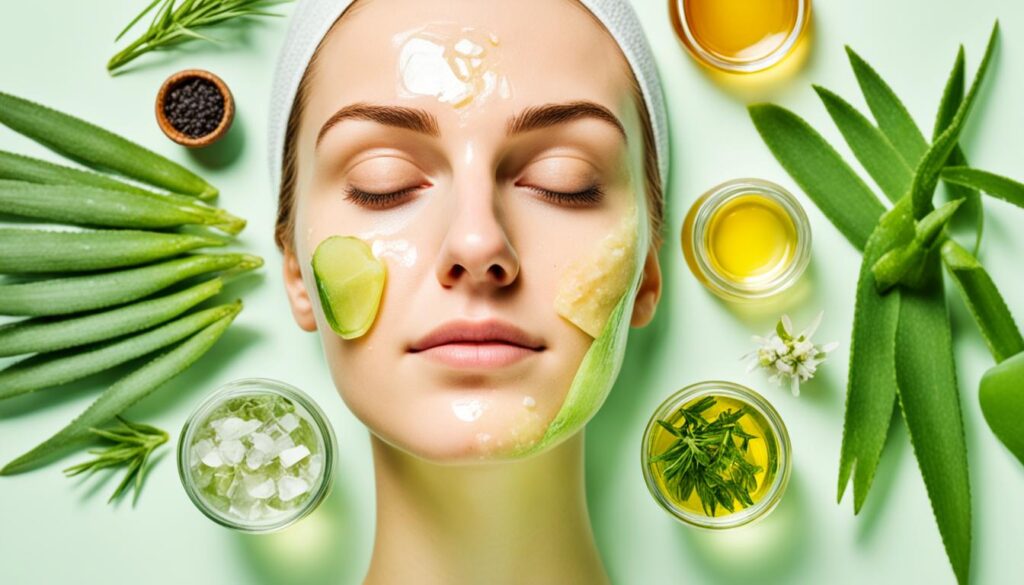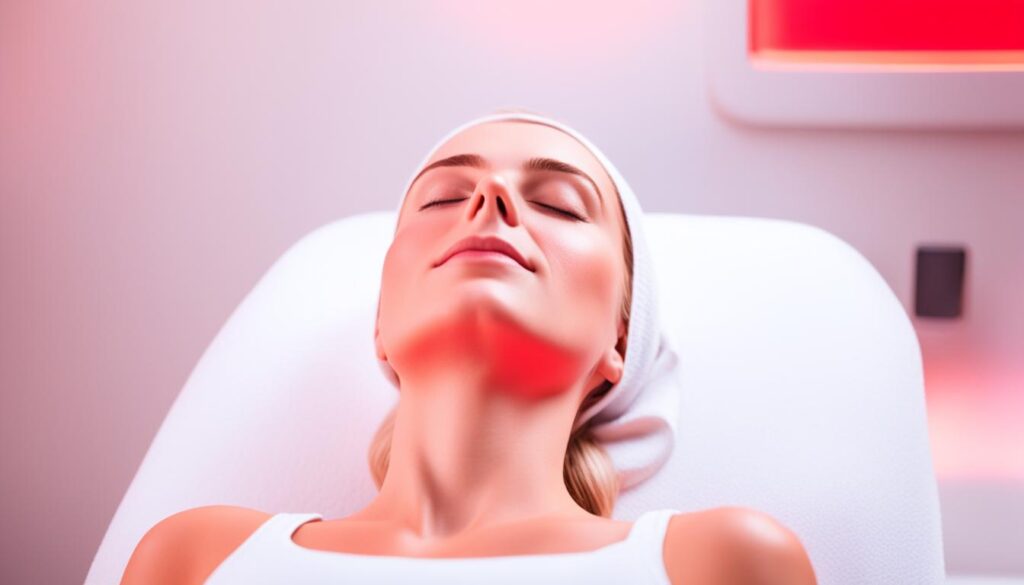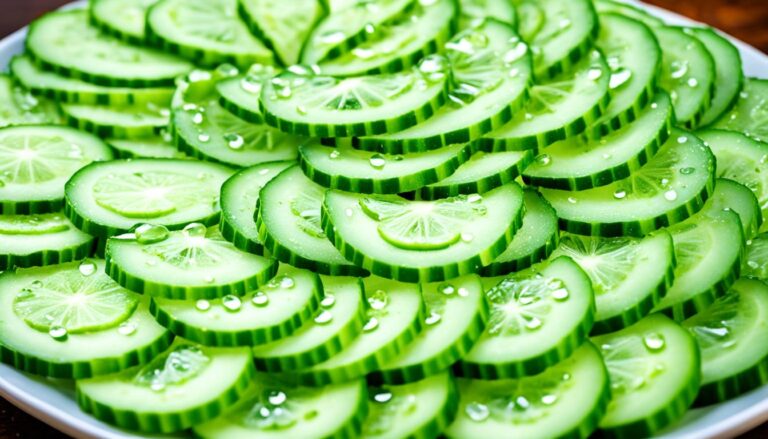Are you tired of dealing with pesky breakouts? Look no further! In this article we will explore the top solutions for acne control. Whether you’re a teenager experiencing hormonal acne or an adult struggling with random flare ups we’ve got you covered.
From natural remedies to advanced treatments, we will discuss the best options to help you achieve clear skin and boost your confidence. Get ready to say goodbye to acne and hello to a radiant complexion!
Acne can be a stubborn and frustrating condition that affects individuals of all ages. But have you ever wondered if there are hidden secrets to effectively managing and preventing acne? What if conventional beliefs about acne control were misleading or incomplete?
We’re about to reveal the truth behind acne control methods and provide you with a wealth of information on the best solutions for achieving clear skin. Prepare to challenge your perception of acne remedies and discover new approaches that truly work. Let’s dive in!
Key Takeaways:
- Explore a range of solutions for acne control
- Discover effective natural remedies and advanced treatments
- Understand the differences between teen and adult acne
- Learn about common triggers and how to avoid them
- Uncover the role of hormones and genetics in acne development
Understanding Acne Nature and Causes
To effectively control and treat acne, it’s essential to understand its nature and underlying causes. Acne can affect both teenagers and adults but the causes and triggers may differ.
Let’s delve into the differences between teen and adult acne, as well as explore common triggers that can lead to breakouts. Additionally, we’ll look at the role of hormones and genetics in acne development, helping you gain insight into why you may be experiencing acne and how to manage it effectively.
Teen vs. Adult Acne: Knowing the Difference
Acne is often associated with adolescence but many adults also experience breakouts. Teen acne typically occurs due to hormonal changes during puberty leading to increased sebum production and clogged pores.
On the other hand adult acne can be caused by factors such as hormonal fluctuations, stress, lifestyle choices, or underlying medical conditions. Understanding the specific characteristics of teen and adult acne can guide you in selecting the most suitable treatment approach.
Common Acne Triggers and How to Avoid Them
Acne triggers can vary from person to person, but some common culprits include:
- Excessive sebum production
- Clogged hair follicles
- Bacterial overgrowth
- Inflammation
- Poor skincare habits
- Environmental factors
By identifying your specific acne triggers, you can take proactive steps to avoid them and minimize breakouts. This may involve adopting a consistent skincare routine, maintaining a healthy diet, managing stress levels, and avoiding harsh or pore clogging products.
The Role of Hormones and Genetics in Acne Development
Hormonal imbalances play a significant role in acne development. Increased levels of androgens, such as testosterone, can stimulate sebum production and trigger acne flare-ups. Hormonal acne often manifests as deep, painful cysts primarily affecting the jawline, chin, and neck.
Genetics also play a role in acne susceptibility. If your parents or close relatives have a history of acne, you may be more prone to developing it as well. Understanding the influence of hormones and genetics can help you make informed decisions when it comes to managing your acne.
Best Acne Remedies From Natural Solutions to Advanced Treatments
When it comes to controlling acne, there are various remedies available, ranging from natural solutions to advanced treatments. In this section, we will discuss the best options for acne control.
Whether you prefer natural remedies like tea tree oil or want to explore advanced treatments like laser therapy or prescription medications, we will provide you with the information you need to make an informed decision on the best acne remedy for you.

Acne Skincare Routine Essentials
Establishing a proper skincare routine is crucial for controlling acne. In this section, we will guide you through a step by step daily skincare regimen designed specifically for acne prone skin.
We will also discuss how to choose the right acne care products taking into consideration your skin type and specific concerns. Additionally, we’ll highlight key ingredients to look for in acne treatment options, such as salicylic acid, benzoyl peroxide, and retinoids.
Step by Step Daily Skincare Regimen
Follow this daily skincare regimen to keep your acne prone skin in check:
- Cleanse: Gently cleanse your face twice a day, morning and night, using a mild cleanser. This helps remove excess oil, dirt, and impurities without stripping away essential moisture.
- Tone: Use an alcohol-free toner to balance your skin’s pH levels and refine pores. This step prepares your skin for better absorption of subsequent skincare products.
- Treat: Apply acne treatment products containing active ingredients like salicylic acid or benzoyl peroxide to target existing breakouts and prevent future ones.
- Moisturize: Hydrate your skin with a lightweight, oil-free moisturizer to maintain optimal moisture levels. Look for non-comedogenic formulas to prevent clogged pores.
- Sunscreen: Protect your skin from harmful UV rays by applying a broad-spectrum sunscreen with an SPF of 30 or higher. Opt for oil-free or gel-based sunscreens to avoid greasiness.
- Extra care: If needed, incorporate additional steps like exfoliation and face masks into your routine 1-2 times a week. Be cautious not to overdo it, as excessive exfoliation can irritate your skin.
Choosing the Right Acne Care Products
When selecting acne care products, consider the following factors:
- Skin type: Determine your skin type whether it’s oily, dry, combination, or sensitive to choose products that cater to its specific needs.
- Acne severity: Assess the severity of your acne. Mild acne may require over the-counter products, while severe or persistent acne may warrant a consultation with a dermatologist for prescription treatments.
- Ingredient list: Look for key acne-fighting ingredients like salicylic acid, benzoyl peroxide, sulfur, or retinoids. These ingredients help unclog pores, reduce inflammation, and regulate sebum production.
- Fragrance and additives: Avoid products with added fragrances, as they can irritate the skin. Opt for gentle, non-irritating formulas.
Ingredients to Look for in Acne Treatment Options
When choosing acne treatment options, keep an eye out for these effective ingredients:
| Ingredient | Benefits |
|---|---|
| Salicylic Acid | Unclogs pores, reduces inflammation, and exfoliates dead skin cells |
| Benzoyl Peroxide | Eliminates acne-causing bacteria, reduces oil production, and promotes skin cell turnover |
| Retinoids | Regulates cell turnover, unclogs pores, and reduces acne scarring |
| Sulfur | Has antibacterial and anti-inflammatory properties, helps reduce oiliness |
Remember to perform a patch test before incorporating new products into your skincare routine and consult with a dermatologist if you have any concerns or persistent acne issues.

Solutions for Acne Targeted Products that Dermatologists Recommend
Dermatologists have extensive experience in treating acne and often recommend specific products for effective acne control. In this section, we will explore targeted solutions for acne, including spot treatments, serums, toners, and effective acne control methods, including prescription medications.
Spot Treatments Fast Acting Remedies for Sudden Breakouts
Sudden breakouts can be frustrating to deal with, but spot treatments can provide fast relief. These targeted solutions are specifically formulated to address individual acne flare ups.
They often contain ingredients like benzoyl peroxide or salicylic acid, which help to reduce inflammation, unclog pores, and promote healing. Apply the spot treatment directly on the affected area, following the instructions provided by the product. Spot treatments are a convenient and effective way to tackle sudden breakouts head-on.
Serums and Toners Balancing Oil Production and Skin pH
Serums and toners play a crucial role in maintaining healthy skin and preventing acne. Serums are lightweight, highly concentrated formulas that target specific skin concerns. Look for serums that contain acne-fighting ingredients like niacinamide, tea tree oil, or hyaluronic acid.
These ingredients help to control oil production, reduce inflammation, and promote a clearer complexion. Toners, on the other hand, help to balance the skin’s pH levels and remove any remaining impurities after cleansing. Opt for toners with gentle acids, such as glycolic acid or witch hazel, to exfoliate dead skin cells and prevent clogged pores.
By incorporating serums and toners into your skincare routine, you can effectively address acne concerns and maintain a healthy skin barrier.
Effective Acne Control Methods Including Prescription Medications
While over the-counter solutions can be effective for mild to moderate acne, some cases may require stronger measures. Dermatologists often prescribe prescription medications to target stubborn or severe acne.
These medications may include topical creams or gels containing ingredients like retinoids, antibiotics, or a combination of both. They work by reducing inflammation, bacteria, and excess oil production, preventing new breakouts and promoting the healing of existing acne.
It’s important to consult with a dermatologist before starting any prescription medication, as they can determine the best course of treatment based on your specific needs and skin condition. They will provide detailed instructions on how to use these medications effectively and monitor your progress to ensure optimal results.
Remember, targeted products recommended by dermatologists can significantly contribute to your acne control efforts. Incorporate spot treatments serums toners, and prescription medications into your skincare routine to achieve clearer, healthier skin.
Alternative Acne Treatments Exploring Light Therapy and Holistic Methods
In addition to conventional acne treatments, there are alternative options that can be effective in controlling acne. These alternative acne treatments offer a fresh perspective and potential solutions for those seeking different approaches to tackle their acne concerns.

One alternative acne treatment that has gained popularity is light therapy. Light therapy utilizes specific wavelengths of light to target acne-causing bacteria and reduce inflammation. By exposing the skin to these light wavelengths, light therapy can help reduce acne breakouts and improve overall skin condition.
Light therapy can be a game-changer for individuals struggling with acne. Its non-invasive nature and targeted approach make it a promising option for those seeking alternative treatments.
But it doesn’t stop there. Holistic methods offer another avenue for acne control. These approaches take a more natural and comprehensive approach to acne treatment, addressing not only the symptoms but also the underlying causes.
One holistic method is making dietary changes. Certain foods can trigger or worsen acne, so incorporating a balanced diet with plenty of fruits, vegetables, and whole grains can help promote healthier skin.
Stress management is another integral part of holistic acne treatment. High levels of stress can trigger hormonal imbalances and inflammation, leading to acne breakouts. By managing stress through practices like meditation, yoga, or engaging in hobbies, you can reduce its impact on your skin.
Furthermore, herbal remedies can be an interesting addition to your acne control routine. Natural ingredients such as tea tree oil, aloe vera, and chamomile have antibacterial and anti-inflammatory properties that can help soothe and heal acne-prone skin.
By exploring alternative acne treatments like light therapy and holistic methods, you can broaden your options and find the best solution for your unique skin concerns. Whether you prefer non-invasive light therapy or a more holistic approach, these alternative treatments provide valuable alternatives to conventional acne treatments.
Conclusion
Congratulations! You’ve made it to the end of our comprehensive guide to acne control. We’ve covered a lot of ground, providing you with valuable insights and practical solutions for achieving clear, blemish-free skin. With the right approach and a bit of patience, you can say goodbye to those annoying breakouts and hello to a radiant complexion.
Remember, finding the right acne control method may require some trial and error. Every individual’s skin is unique, so what works for someone else might not work for you. The key is to be patient and consistent with your skincare routine.
If you’re unsure about which products or treatments to try, don’t hesitate to consult with a dermatologist. They can provide personalized advice based on your specific skin concerns and goals. A dermatologist will guide you in selecting the most suitable acne control method that aligns with your needs.
Good luck on your journey to achieving clear, healthy skin! Remember to incorporate the acne control tips and clear skin tips we’ve shared throughout this guide. By taking proactive steps and following a dedicated skincare regimen, you’ll be well on your way to banishing breakouts and enjoying the confidence that comes with having a smooth, glowing complexion.





